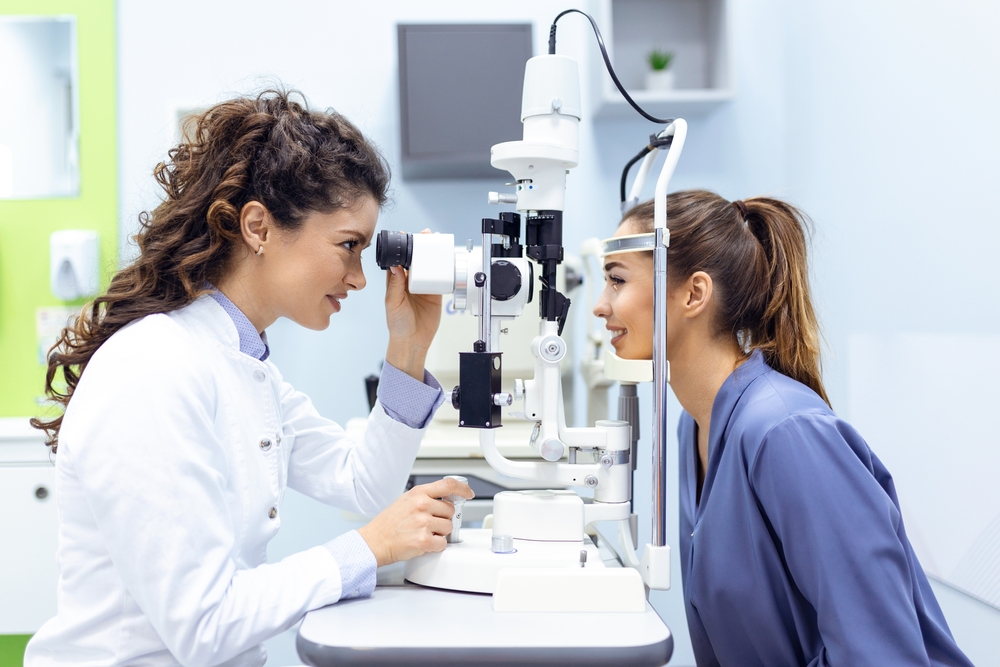All Categories
Featured

While most individuals understand the relevance of protecting their skin from the sun, the hazardous impacts of ultraviolet (UV) rays on eye wellness usually go ignored. However, excessive direct exposure to UV radiation can cause a variety of eye troubles, a few of which can result in irreversible damage. Whether you're taking in the sunlight on a summer season day or strolling outdoors on a gloomy afternoon, protecting your eyes from UV rays is essential. Here's what you need to find out about the results of UV radiation on your eyes and exactly how to secure them.
What Are UV Rays? UV rays are a kind of electro-magnetic radiation discharged by the sun. They are categorized right into three kinds:
UVA Rays: These pass through deep into the skin and eyes and can contribute to lasting damage. UVB Rays: These rays are much more extreme than UVA and are primarily in charge of surface-level damage to the eyes and skin. UVC Rays: These are one of the most harmful however are mainly taken in by the Earth's ozone layer and don't commonly reach us. UVA and UVB rays are the main wrongdoers behind eye-related damages.
Short-Term Impacts of UV Exposure on the Eyes. Even short-term direct exposure to extreme UV rays can damage your eyes. One usual problem triggered by this is photokeratitis, or "sunburn of the eye." Signs and symptoms of photokeratitis include:
Excruciating, red eyes. Level of sensitivity to light. Tearing or excessive watering. Momentary vision loss or blurry vision. Photokeratitis is usually momentary, however it acts as a caution of how destructive UV exposure can be, even in little dosages.
Long-Term Effects of UV Direct Exposure. Prolonged direct exposure to UV radiation can result in extra severe and long-term eye problems, such as:
Cataracts: UV rays can accelerate the development of cataracts, a problem that triggers clouding of the eye's natural lens, bring about fuzzy vision and, if unattended, blindness.

Macular Deterioration: UV exposure can damage the retina, specifically the macula, boosting the risk of age-related macular degeneration (AMD), which affects central vision.
Pterygium: A growth of tissue on the white part of the eye that can extend over the cornea, triggering pain, soreness, and vision troubles.
Pinguecula: UV exposure can trigger yellow-colored deposits to base on the conjunctiva, leading to irritability and dry skin.
Skin Cancer Around the Eyes: The fragile skin surrounding your eyes is extremely at risk to UV radiation, raising the threat of skin cancers cells like basic cell cancer and squamous cell cancer.
Exactly How to Shield Your Eyes from UV Rays. Protecting your eyes from UV rays is easy and calls for a couple of mindful practices:
Buy Top Quality Sunglasses: Select sunglasses that block 100% of UVA and UVB rays. Search for labels that define "UV 400" defense. Wrap-around designs are excellent as they block UV rays from the sides also.
Wear a Wide-Brimmed Hat: A hat with a brim at least 3 inches vast can considerably minimize UV direct exposure to your eyes and face.
Restriction Exposure Throughout Height Hours: UV rays are best in between 10 a.m. and 4 p.m. If you must be outdoors during these hours, make certain you're adequately protected.
Do Not Be Tricked by Clouds: UV rays can penetrate through clouds, so it is essential to put on sunglasses even on overcast days.
Protect Your Eyes Year-Round: Snow, sand, and water can mirror UV rays, magnifying their impacts. Eye protection isn't just for bright summer season days-- ensure you're covered in all seasons.
Use UV-Blocking Get In Touch With Lenses: Many call lenses currently come with UV security. If you use get in touches with, ask your optometrist concerning lenses with integrated UV filters for added protection.
Urge Eye Protection for Kid: Kid's eyes are extra conscious UV rays due to the fact that their lenses are clearer, enabling more radiation to get to the retina. Make sure they wear sunglasses and hats during outdoor tasks.
Routine Eye Tests. Regular examinations with an eye treatment expert are essential for early discovery of any UV-related damages. An optometrist or eye doctor can evaluate your eyes, recommend safety measures, and find problems like cataracts or macular deterioration early.
Verdict. By wearing UV-blocking sunglasses, limiting sun exposure during optimal hours, and remaining regular with eye examinations, you can guarantee your eyes stay healthy and balanced and your vision continues to be clear for years to come. Shielding your eyes from UV radiation isn't just about comfort-- it's a vital action in protecting your long-lasting eye health and wellness.
Latest Posts
Don’t Miss Exclusive Auto Repair Offers in Chicago at Montclare Auto Repair
Check Out the Best Auto Repair Offers in Montclare, Chicago
Learn About Premier Auto Repair Care at Montclare Auto Repair – Expert Care for Your Vehicle
More
Latest Posts
Don’t Miss Exclusive Auto Repair Offers in Chicago at Montclare Auto Repair
Check Out the Best Auto Repair Offers in Montclare, Chicago
Learn About Premier Auto Repair Care at Montclare Auto Repair – Expert Care for Your Vehicle